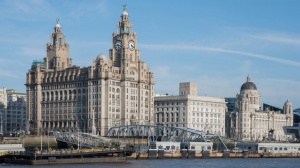Understanding Entrepreneurial Psyche And Flow
It’s human nature to want to create value

What is the definition of entrepreneurial spirit, or psyche? I like using the ancient Greek word for spirit – psyche, because it also links to the realm of psychology – mindset, attitudes – all the “stuff” that defines us as human beings, shaping our behaviour, and what we achieve in life.
A key point to make up front is that, in my view, the entrepreneurial psyche is at the very core of what it means to be human. So what is it? I accept the great Peter Drucker’s definition of an “entrepreneur” as someone working to create value through innovation.
In my view, it’s human nature to want to create value – to live a life of meaningful contribution – and to seek to make the world a better place. With this definition in place, let’s consider another concept.
Mihály Csíkszentmihályi came up with the psychological concept of “flow”, initially to explain the phenomenon of athletes getting into the peak performance “zone” whereby they would “become the game”, forgetting they’re “playing” a game.
I borrowed this concept, along with many others, to use in my efforts to develop a mathematical model to explain why some entrepreneurs and enterprises are extremely successful, while most fail – or at least fail to rise above mediocrity.
The model identifies seven core aspects of psychology that directly relate to the seven essential elements of organizational strategy. Another concept I borrowed, after tripping over it and finding it amazingly useful, comes from ancient Indian Ayurvedic philosophy.
Chakras are viewed as energy centres within the body that either enable “flow” of vital psychic energy, or block it. The reason I found the concept of chakras useful is that in the struggle to understand and relate it, I had to rethink and refine some of my thinking about psychology and strategy, and their interrelationship. So here’s the model:
The chakras are, in a sense, the connecting bits of DNA that sit in the midst of the dance between strategy (planning and implementation) and psychology as it plays out in individuals and groups.
I would argue that the philosophical or spiritual meaning of each chakra is unimportant. What is very important and useful is the notion that each chakra “energy centre” can either be totally open, allowing perfect flow, or blocked, to various degrees.
The strive for perfection
Perfection is impossible to achieve, such that even if an organization invests to do extremely well across the board, it’s not difficult to understand why only half of their innovation efforts might succeed.
It’s also not difficult to understand why innovation success rates are very low (less than 10%) across all types of enterprises and industries globally (Dobin Group, 2012; Richards, 2014; VIIMA, 2018).
Let’s summarise by describing what blockage and flow look like in the real world:
- Lack of purpose and drive
- Unclear vision and direction
- Poor communications
- Low cohesion and disengagements
- Poor leadership and disempowerment
- Lack of creativity and creative conflict
- Inattention to results and poor performance
Let’s consider what great flow looks like using Walt Disney as an example of a massively successful entrepreneur and innovator, the founder of the world’s largest and most successful entertainment conglomerate.
- Unwavering clarity of purpose
- Audacious vision for success
- Great communicator and influencer
- Highly engaging in relationships
- An empowering leader
- Massively creative
- Mindset of restless dissatisfaction
I’d like to close by pointing out how Walt is a perfect illustration of what I call “the entrepreneur’s paradox” – the fact that the entrepreneurial mindset is based on restless discontentment, and yet also inspired by optimism – that the glass can always be filled a little, or a lot more.
"As Thomas Edison (circa 1930) said “Restlessness is discontent – and discontent is the first necessity of progress. Show me a thoroughly satisfied man – and I will show you a failure.”
About the Author
Dr Dave Richards is cofounder of the MIT Innovation Lab, and highly acclaimed author, speaker and consultant on strategic innovation leadership. His passion is inspiring, enabling, empowering and encouraging innovative people, teams and enterprises to sustainably achieve significant results.
He shapes transformational journeys of leaders, leadership teams and enterprises, leading to greater cohesion, alignment, purposeful achievement of strategic aims, and value creation – with substantial impacts on customer experience, profits, and growth of value.
His best-selling book, The Seven Sins of Innovation: A Strategic Model for Entrepreneurship “elevates the thinking on this crucial subject to the highest level” according to Roger Lacey, Chief Strategy Officer, 3M. Dave’s PhD in Mathematical Psychology and Neuroscience was awarded by the University of Toronto.
Thanks for signing up to Minutehack alerts.
Brilliant editorials heading your way soon.
Okay, Thanks!
